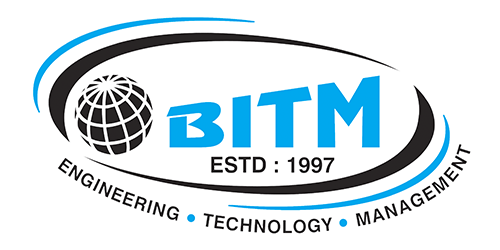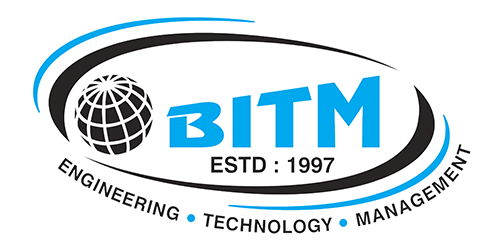BEST PRACTICES FOR THE ACADEMIC YEAR 2022-23
BEST PRACTICE 1 2022-23
To Set up Solar Energy Park
To generate at least 50% of the Energy requirement from the Rooftop Solar plant.
All rooftops are suitable for solar panel installation. Factors such as orientation, angle, shading, and structural integrity must be assessed to ensure optimal energy generation
By implementing this best practice, educational institutions can contribute to the transition toward a more sustainable energy future while enriching the academic experience for students and stakeholders.
Reduced carbon emissions and energy costs for the institution. Enhanced experiential learning opportunities for students. Potential for research collaborations and innovation in renewable energy technology. Demonstration of institutional commitment to environmental stewardship and social responsibility
Providing safe access for installation, inspection, and maintenance of rooftop solar panels is critical. Safety measures, such as guardrails, ladders, or roof hatches, may need to be installed to facilitate access while minimizing risks. Costs for rooftop solar installations can be substantial, including equipment procurement, installation labor, and engineering fees.
After implementation of Rooftop Solar Energy Park nearly 50% of the Institution Energy consumption is fulfilled by the solar plant
BEST PRACTICE 2 2022-23
Waste management in college involves various practices aimed at reducing, recycling, and properly disposing of waste generated within the campus
The objective of waste management is to effectively and sustainably handle all types of waste, including solid, liquid, and hazardous waste.
The context of waste management is multifaceted, encompassing environmental, social, economic, technological, and regulatory factors that shape waste management practices and policies at the local, national, and global levels. Effective waste management requires holistic approaches that consider these various contextual factors to achieve sustainable outcomes.
Implement a comprehensive waste segregation system where different types of waste such as paper, plastics, metals, organic waste, and hazardous waste are segregated at the source itself. This makes recycling and proper disposal more efficient.
Encourage the campus community to follow the principles of reduce, reuse, and recycle. Minimize waste generation by using digital platforms for communication, promoting the use of reusable items such as bottles and containers, and setting up recycling facilities for materials like paper, plastic, and glass.
Develop a system for the proper disposal and recycling of electronic waste (e-waste) such as old computers, printers, and other electronic devices. Partner with certified e-waste recycling agencies to ensure that electronic waste is handled in an environmentally responsible manner.
The institution has implemented comprehensive waste management strategies covering various types of waste:
- Dustbins are provided on campus for the collection of dry and wet waste separately.
- The campus features a network of underground sewer lines connected to a common line diverting all sewage to a single source. Treatment of liquid waste is conducted through a Sewage Treatment Plant (STP) with a capacity of 325 KLD, constructed at a cost of Rs. 60 Lakhs, as approved by the PCB.
- Biomedical waste generated is handed over to BMC, which has an MoU with M/s Suryakanth Environmental Technologies ® for the scientific disposal of biomedical waste in compliance with government norms.
- E-Waste is managed through an MoU with Sogo-Energy Pvt Ltd. The institution hands over e-waste to this organization for proper disposal.
- Sewage water is processed in the STP plant. Treated water from the STP is utilized for gardening purposes, promoting sustainable water usage within the campus.
- Hazardous chemical waste is treated before disposal. This treatment process involves dilution by adding a coagulant to facilitate precipitation.
Addressing these challenges requires a multi-faceted approach involving stakeholder engagement, public awareness campaigns, capacity building, investment in infrastructure and technology, policy and regulatory reforms, and collaboration between government, industry, civil society, and communities.
The Institution has actionized this best practice and continue to spread awareness among stake holders since from 2019.
BEST PRACTICES FOR THE ACADEMIC YEAR 2021-22
BEST PRACTICES 1 2021-22
BEST PRACTICE 2 2021-22
BEST PRACTICES FOR THE ACADEMIC YEAR 2020-21
BEST PRACTICE 1 2020-21
BEST PRACTICE 2 2020-21
Effective Placement Support and Training for Students by using Superset TNPSuite Mobile App
To Support Students remotely for placement activities by tracking the placement progress of each student.
Due to pandemic there was an urgent need to support the 2020-21 passing out students wrt placements on an online platform to schedule training, track and monitor the placement activities.
The placement committee unanimously approved Superset TNP Suite Mobile App (Android/iOS) by GreekTurtle Technologies Ltd. The App Provides feature such as creation of student profile, allocation to placement mentors, posting of job profile, schedule of placement training and result of the campus selections. 650+ students downloaded the app and continuous push notifications were sent wrt placement activities. This enabled the placement team to continuously monitor the progress of each graduate and accordingly train, track and place them in top notch companies. The institution procured this platform and was delivered to the students at a free of cost.
538 Under Graduate Students were selected and 101 PG Students were selected with a Highest Salary of 16.20 LPA and an Average Salary of Rs. 4.50 LPA in top-notch companies. The placement cell had set a target of 450 placements for academic year 2020-21 and the target was met beyond the expectations with 639 placements.
Student and Placement Coordinators faced lot of difficulty in adopting to this new app. However, this was mitigated by giving an online training and hand holding them at every step.
The Institution has actionized this best practice and continue to use the App for the 2021-22 final year students and also continue to support off campus for 2020-21 batch students.
BEST PRACTICES FOR THE ACADEMIC YEAR 2019-20
BEST PRACTICE 1 2019-20
Wipro Talent Next Digital Skills Readiness Program and Certification
To train and certify the faculty members of the institution by Wipro in new-age digital skills. In turn, the trained staff members will impart necessary training to the students on the Wipro Ltd. platform for digital skills and certification.
The industry needs well-trained student graduates who can start working on projects without any training that needs to be imparted to a fresher.
The Institution approached Wipro Ltd. to impart necessary new-age skills to our faculty members which in turn our staff members replicate the same training module to train the students and certify the same. The institution deputed five faculty members for training at the Wipro campus in the month of January 2020. They were rigorously trained by Wipro Trainers and all the five faculty members were certified by Wipro Ltd. Namely Digital Skills Readiness Program and Certification.
Based on the performance of the faculty where 100% of the faculty were certified, Wipro decided to extend the same kind of training on the Wipro platform for Digital Skills Readiness Program and Certification. The second half of the academic year 2019-20 was the most challenging year due to the COVID-19 pandemic. In spite of the COVID-19 pandemic the staff members enrolled 311 3rd year engineering students across three engineering programs namely, Computer Science & Engg., Electronics & Communications Engg. & Electrical & Electronics Engg. The entire program was rolled out using Microsoft Teams and Students overwhelmingly attended the program.
229 students out of 311 were certified by the Wipro under the Digital Skills Readiness Program and Certification. Out of 229 students, 150+ students were recruited by top-notch companies namely Cognizant, TCS, Wipro, Infosys, Sonata, Integra &, etc.
The initial plan was to roll out the program on an offline mode in February -2020. But due to the COVID-19 pandemic, faculty had to transition towards the online mode. Initially, students expressed the effectiveness of the online but the issues were resolved by planning the training in a more effective manner. Students were required to purchase or borrow laptops to impart this particular training on the Wipro Platform.
This program has created tremendous impact and students were capable of clearing campus interview with ease and this has resulted in good number of placements.
BEST PRACTICE 2 2019-20
BEST PRACTICES FOR THE ACADEMIC YEAR 2018-19
BEST PRACTICE 1 2018-19
BEST PRACTICE 2 2018-19
BEST PRACTICES FOR THE ACADEMIC YEAR 2017-18
Best Practices 1 2017-2018

